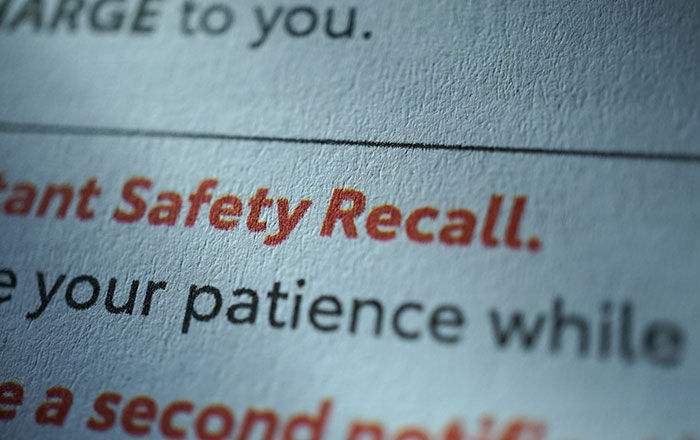
Navigating the intricacies of personal injury settlements can be complex, and understanding the tax implications of such settlements is crucial. In South Carolina, as in many other states, the tax treatment of personal injury settlements can vary based on several factors. This article delves into the question of whether personal injury settlements can be taxed in South Carolina, providing insights into the relevant considerations and potential exceptions.
Understanding Personal Injury Settlements
A personal injury settlement is an agreement reached between an injured individual (the plaintiff) and the party at fault (the defendant) or their insurance company. The settlement is typically intended to compensate the plaintiff for various losses incurred due to the injury, including medical expenses, lost wages, pain and suffering, and more. While settlements are often negotiated to avoid the time and costs associated with a trial, it’s essential to consider the potential tax implications.
Tax Exclusion for Physical Injuries
In South Carolina, as well as at the federal level, personal injury settlements received for physical injuries or physical sickness are generally not considered taxable income.
Here’s a breakdown of what parts of a personal injury settlement are typically exempt from tax in South Carolina:
- Medical Expenses: Any portion of the settlement that is designated to cover medical expenses, including hospital bills, doctor’s fees, rehabilitation costs, prescription medications, and other healthcare-related expenses, is typically considered non-taxable.
- Pain and Suffering: Compensation awarded for pain, suffering, emotional distress, and the overall impact of the injury on your quality of life is usually exempt from taxation.
- Loss of Consortium: Damages awarded to compensate your spouse for the loss of companionship, support, and intimacy resulting from your injuries are often non-taxable.
- Physical Injuries: Any amount that directly relates to your physical injuries or physical sickness, such as compensation for broken bones, scars, burns, and other physical harm, is typically considered exempt from tax.
Punitive Damages & Emotional Distress
However, it’s important to note that not all components of a personal injury settlement are treated the same way. For instance, punitive damages, which are awarded to punish the defendant for particularly egregious behavior, are typically subject to taxation in South Carolina. Additionally, any portion of the settlement intended to compensate for emotional distress or psychological injuries might be considered taxable income if it’s not directly related to physical injuries.
Here’s a breakdown of what parts of a personal injury settlement are typically subject to taxation in South Carolina:
- Punitive Damages: Punitive damages, which are intended to punish the defendant for particularly egregious behavior, are typically considered taxable income in South Carolina and at the federal level.
- Interest on Settlement: Any interest earned on the settlement amount after it’s received might also be subject to taxation.
- Emotional Distress and Psychological Injuries: If a portion of the settlement is specifically intended to compensate for emotional distress or psychological injuries and is not directly related to physical injuries, it might be considered taxable income.
- Lost Wages and Earning Potential: Compensation for lost wages or lost earning potential is generally subject to taxation similar to regular wages.
Consultation with a Tax Professional
Due to the intricacies involved in determining which portions of a personal injury settlement are taxable, it’s highly recommended to consult with a tax professional. Tax experts can provide personalized guidance based on your specific situation, ensuring you accurately report and account for any taxable portions of your settlement.
Structured Settlements and Annuities
In some cases, personal injury settlements are structured as periodic payments over time, rather than a lump-sum payment. Structured settlements may offer tax advantages, as the tax liability is spread out over the duration of the payments. This can potentially reduce the overall tax burden compared to receiving a large lump-sum settlement.
Exceptions and Special Circumstances
There are exceptions and special circumstances where tax treatment might differ. For instance, if you’ve previously claimed a tax deduction for medical expenses related to the injuries you’re receiving a settlement for, you might need to report a portion of the settlement that corresponds to the previously deducted expenses. Consulting with a tax professional can help ensure compliance with these nuanced scenarios.
Is filing a claim worth the effort if you’re taxed on the settlement?
You might be asking yourself whether filing a personal injury claim is worth the effort, if you have to pay taxes on the settlement. The answer is almost always “yes.”
This is because most of the money you will receive will likely be tax-free. Even if this isn’t the case, any award you receive will be greater than the amount of taxes you have to pay. In addition, filing a claim and reaching a settlement means you have held the responsible party accountable and obtained justice.
Conclusion
In South Carolina, personal injury settlements for physical injuries or physical sickness are generally not taxed at the state or federal level. However, various factors can influence the taxation of personal injury settlements, including the nature of the damages awarded, the presence of punitive damages, and the treatment of lost wages and interest. It’s essential to consult with a tax professional to accurately determine the taxable portions of your settlement and report them correctly. By seeking advice, you can navigate the tax implications of your personal injury settlement with confidence and ensure that your financial outcome aligns with your expectations.
Contact McWhirter, Bellinger & Associates
If you’ve been injured due to the negligence or recklessness of someone else, you probably have a lot of questions about filing a personal injury claim. You might also be wondering if you need to hire a South Carolina personal injury lawyer.
Although the state of South Carolina does not require you to hire a lawyer for your personal injury claim, many accident victims choose to do so. There are many reasons for this, but one of the most common reasons to hire a personal injury lawyer is because attorneys handle all of the legal tasks so that victims can focus on their recovery. Hiring a lawyer also means you’ll have a skilled professional by your side who can put an accurate value on your case and fight for you to receive every penny you’re rightfully owed.
If you’ve lost a loved one due to the actions of another party, you may be eligible to file a wrongful death lawsuit. While no amount of money can bring back your loved one, it can help alleviate the financial burden imposed by funeral costs and other end-of-life expenses. No one should have to worry about such things when they are grieving the sudden loss of a family member.
McWhirter, Bellinger & Associates provides free case evaluations to personal injury accident victims. There’s no obligation to hire us – but if you do, you won’t pay anything unless we help secure an award for you.
We have seven offices across the Midlands of South Carolina, in Aiken, Camden, Columbia, Lexington, Newberry, Orangeburg, and Sumter. We have an excellent track record of securing compensation for accident victims, and we would love to help you if we can.
Give McWhirter, Bellinger & Associates a call today at 888-353-5513 for a free case evaluation. It won’t cost you anything to see if we can help.®















